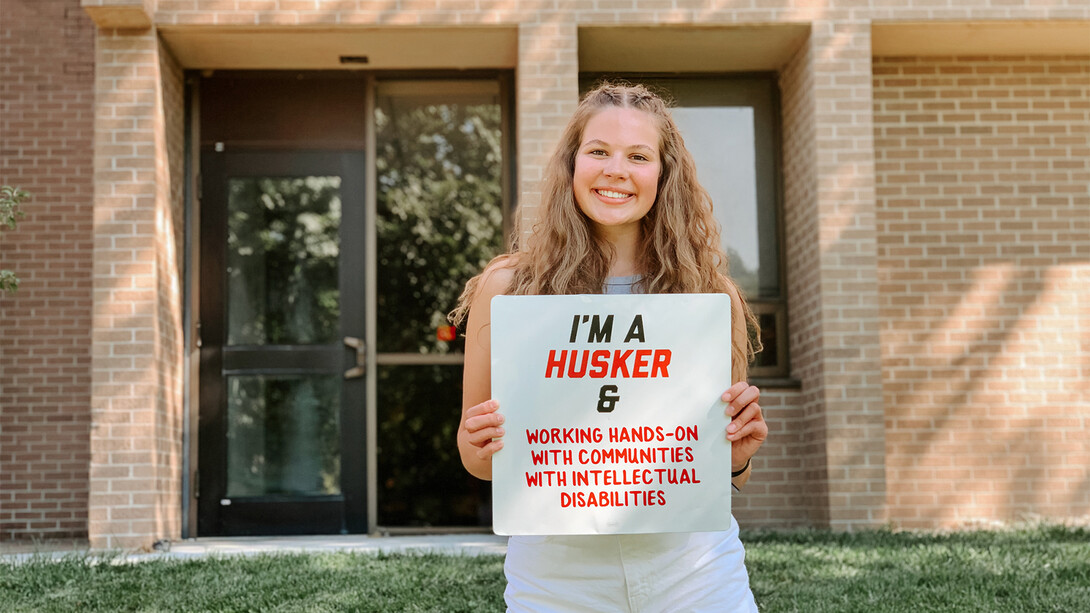
Emma Conradi, junior communication sciences and disorders student, had a willingness to jump headfirst into an opening at a local nonprofit and it has led to multiple experiential opportunities that is preparing her for a Speech-Language Pathology grad program.
“I wanted to start building my resume to apply to grad school, and I saw an opening at the Autism Center of Nebraska,” said Conradi, an aspiring speech-language pathologist since high school. “I’d honestly never worked with kids with special needs before, so I was a little nervous starting out.”
Her decision to try something new paid off — not only has she gotten hands-on experience in work related to speech-language pathology, but her time at the Autism Center has also connected her with even more experiential learning opportunities.
Conradi was put in touch with the Autism Family Network and Down Syndrome Association for Families, local nonprofits that offer resources and social opportunities to individuals and families with intellectual disabilities.
“They told me, ‘You’re great with this population, so we want to get you working with more people.’ It all just happened one after the other,” Conradi said.
Conradi supports and plans social events for both organizations, bringing her closer to her professional goals while making an impact on the communities she serves. She’s now furthering that impact by participating in research at Nebraska U’s Learning Lab in the Barkley Speech, Language and Hearing Center.
“Even though it was challenging at first, I realized that I’m capable of working with these kids,” Conradi said. “I’m really invested in helping populations with intellectual disabilities, which is what got me into research at the UNL Learning Lab.”
The NU Learning Lab’s research works with children involved with the Down Syndrome Association for Families, which means that Conradi is conducting research alongside many of the same kids she’s built relationships with through her nonprofit work. The research looks at literacy and reading in children with Down Syndrome and studies ways to improve their outcomes.
“It’s so great because you get to interact with the kids and make it fun for them,” Conradi said. “The kids get so excited when we tell them, ‘We’re doing all this for you.’
“It’s been so rewarding.”







